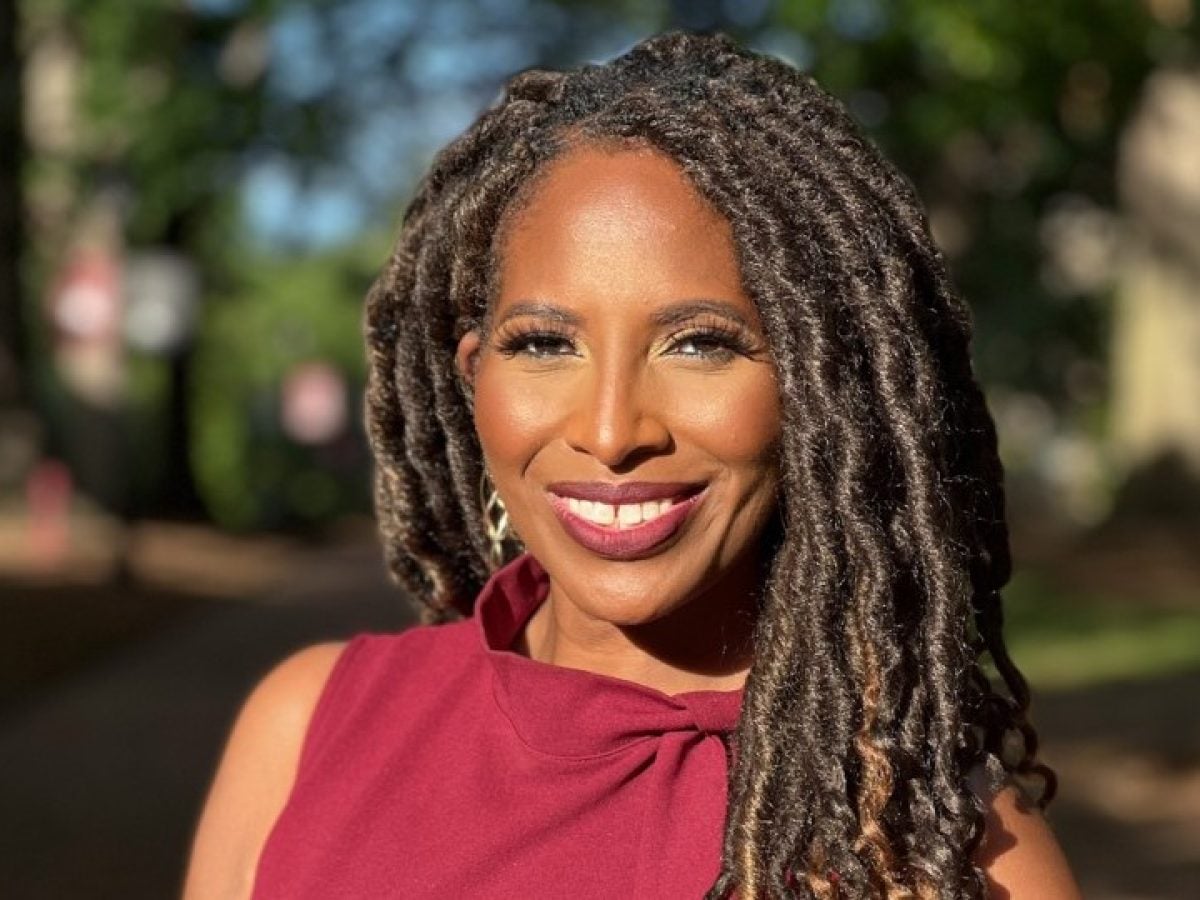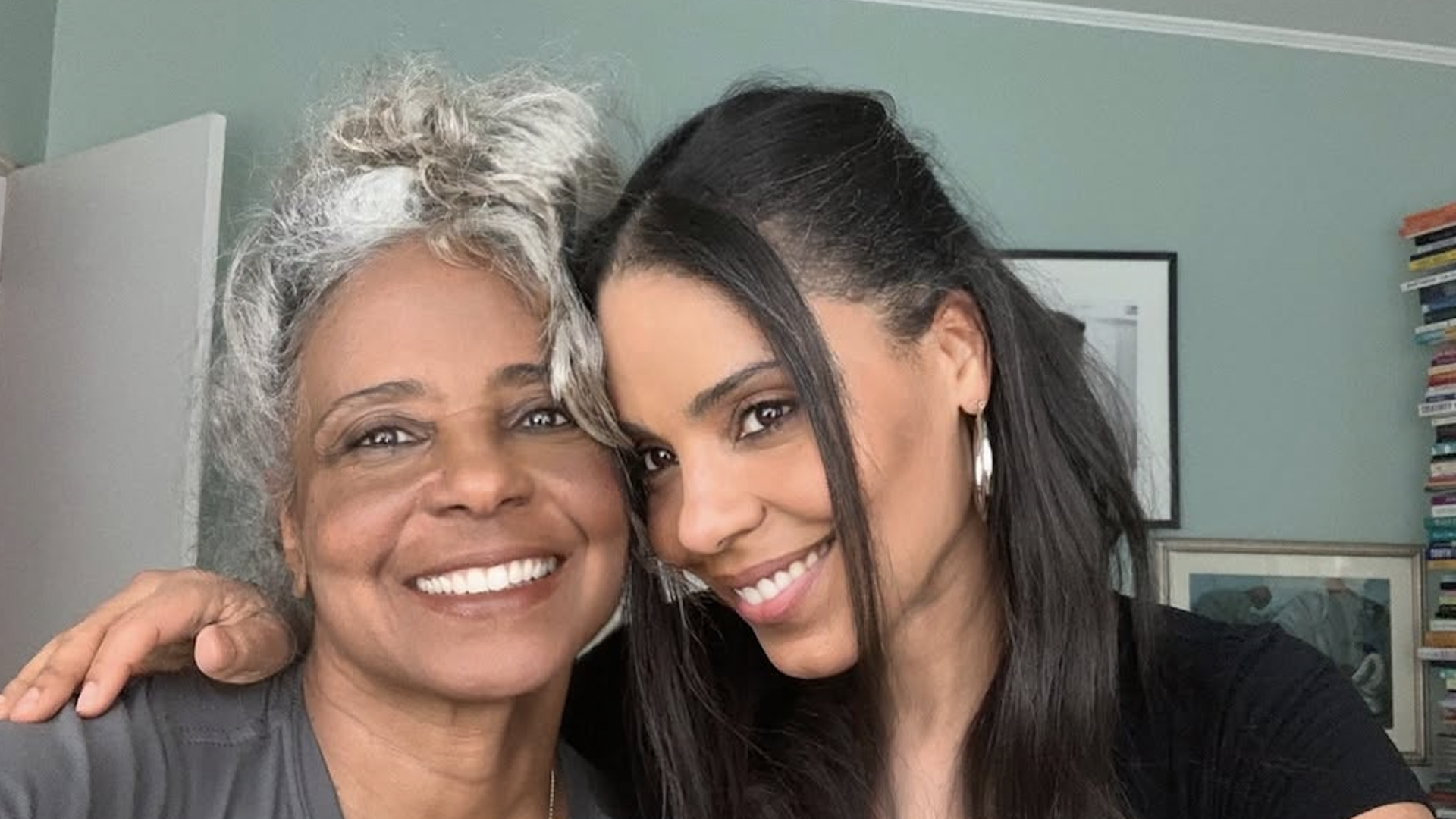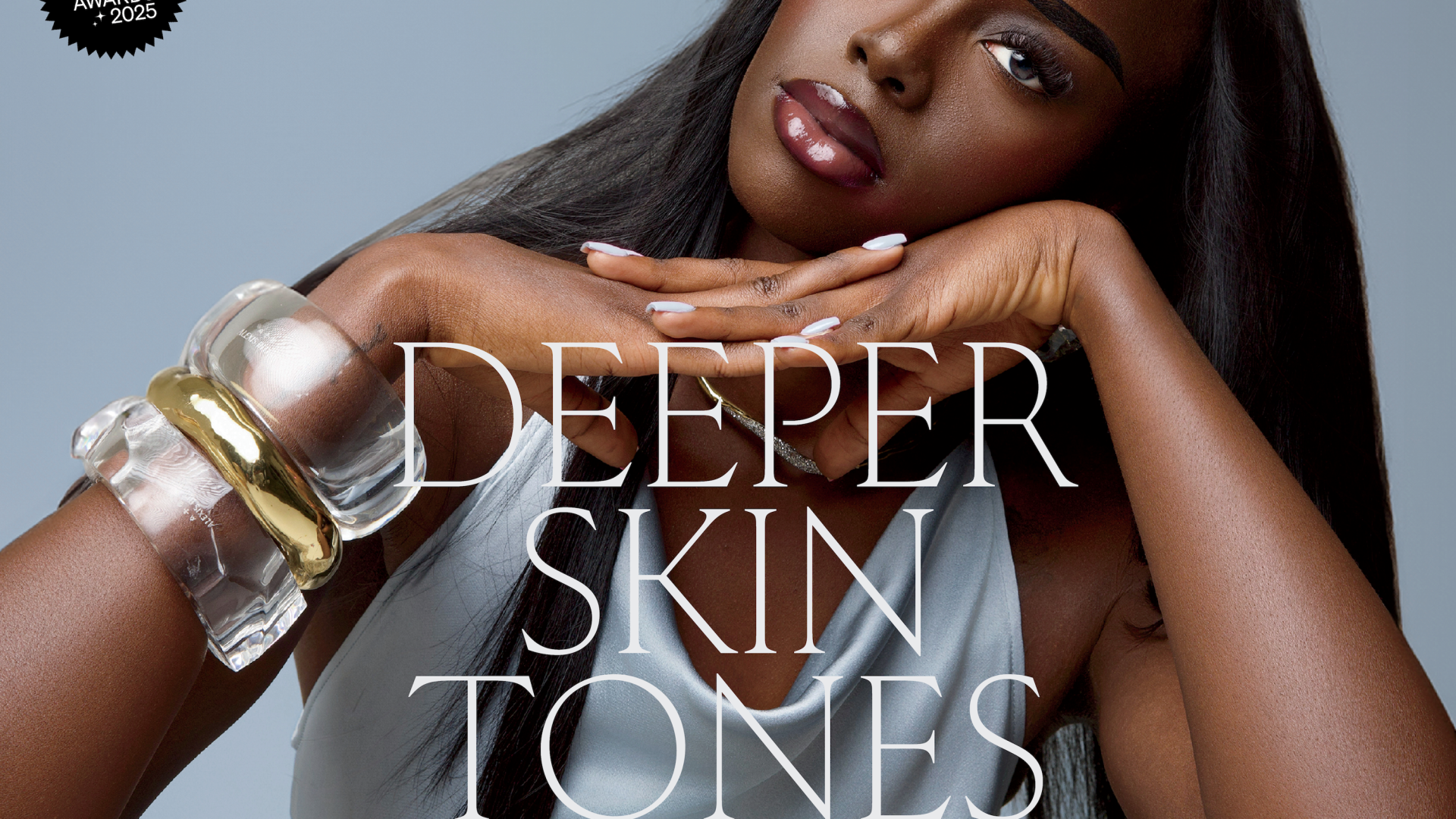
The quiet, rhythmic creak of her parents’ rocking chair underpins Jotaka Eaddy’s strong but friendly voice as she responds to my first question.
How did this all begin?
Before pointedly answering the query, she offers some important context.
“I’m sitting on my parents’ porch, outside of their home right now,” she says dreamily. The South Carolina sun touches her face as she shifts slightly to take a thoughtful pause. Fair, since she has a litany of accomplishments to her name. Eaddy is a respected leader in both corporate and nonprofit circles. For years, she sat in the C-Suite of a Silicon Valley based company, one of the Black women to do so. After “doing pretty well,” she semi-retired and moved full time into the social impact space, launching her consulting firm Full Circle Strategies. Eaddy has been on the receiving end of a slew of recognitions and awards, and Oprah knows her name. But for the sake of timeliness, I centered our conversation around her current point of passion #WinWithBlackWomen (WWBW), a collective of Black women leaders across various sectors who convene on a weekly basis via Zoom to connect, uplift one another, and mine solutions. On the evening of July 21, the more than 44,000 women callers made history when almost immediately after the announcement that President Biden wouldn’t be seeking reelection, they raised more than $1 million in less than four hours for VP Harris’s campaign.
Since then a litany of other Zoom-based political interest groups have followed suit, like White Women For Harris, for instance.
Now, four years later, Eaddy says it’s truly a full circle moment.
“When Win With Black Women was started, it’s so crazy, I was visiting my parents during the pandemic, and that’s where I was on my little dirt road where I grew up,” Eaddy tells ESSENCE, pointing just ahead. “When we hit the milestone on that night, I was right here again, in my parents’ home.”
Eaddy grew up in Johnsonville, South Carolina, the sleepy town of 14,000. It’s the place she says she returns to stay grounded, regardless of how high her star rises.
“I remember I was sitting at home, I was watching CNN, and I saw just the attacks,” she recalls. “Every Black woman that was potentially going to be a vice presidential nominee, there were some ad hominem attacks against her—personal attacks that aren’t against your record or your policies, but really just an affront to who you are, like your looks. Nothing to do with your merit for the job. And I just remember every single Black woman, whether it was Stacey Abrams or Karen Bass, or Kamala Harris. There were just racist and sexist tropes against those women. They were too ambitious.”
Frustrated by the realization, Eaddy says that her mentor Minyon Moore, a respected political activist advised her to do something about it. And that’s exactly what she did.
The first series of #WinWithBlackWomen calls happened in 2020 and was quickly credited with making a significant impact on the historic election of 2020 which resulted Kamala Harris being elected as the first Black woman Vice President of the United States.
“I wasn’t surprised by the mobilization at all,” she says. “We always get what needs to be done, done. I stand on the shoulders of the powerful Black women that came before me, fighting for the change we all want to see.”
Despite the immense impact, Eaddy says the work is just starting for WWBW, but she’s confident about the path forward.
“Yes, it’s going to be good,” she says. “We’ve got some good folks coming on and different voices, because one of the things that we always balance is that with Win With Black Women, yeah, we’re about the work, but we’re about the heart space, because it’s just as important to Black women to have a place where our hearts can flourish. Where we can be seen and heard. Things have shifted. We used to just be in a meeting format on Zoom where we would just have hundreds of Black women in a meeting, where they can unmute and mute themselves. But we had to go to a webinar style because we can’t hold thousands of people anymore in a meeting. Zoom just doesn’t allow it. One thing that will never change is our core mission. This is a love letter to women. Our investment. A place where we all believe we can and will win.”
This interview was edited for clarity and brevity.




